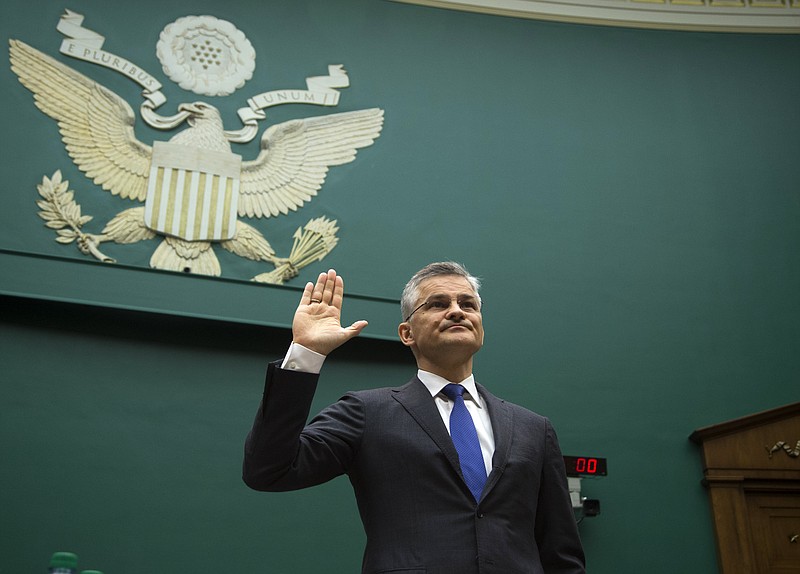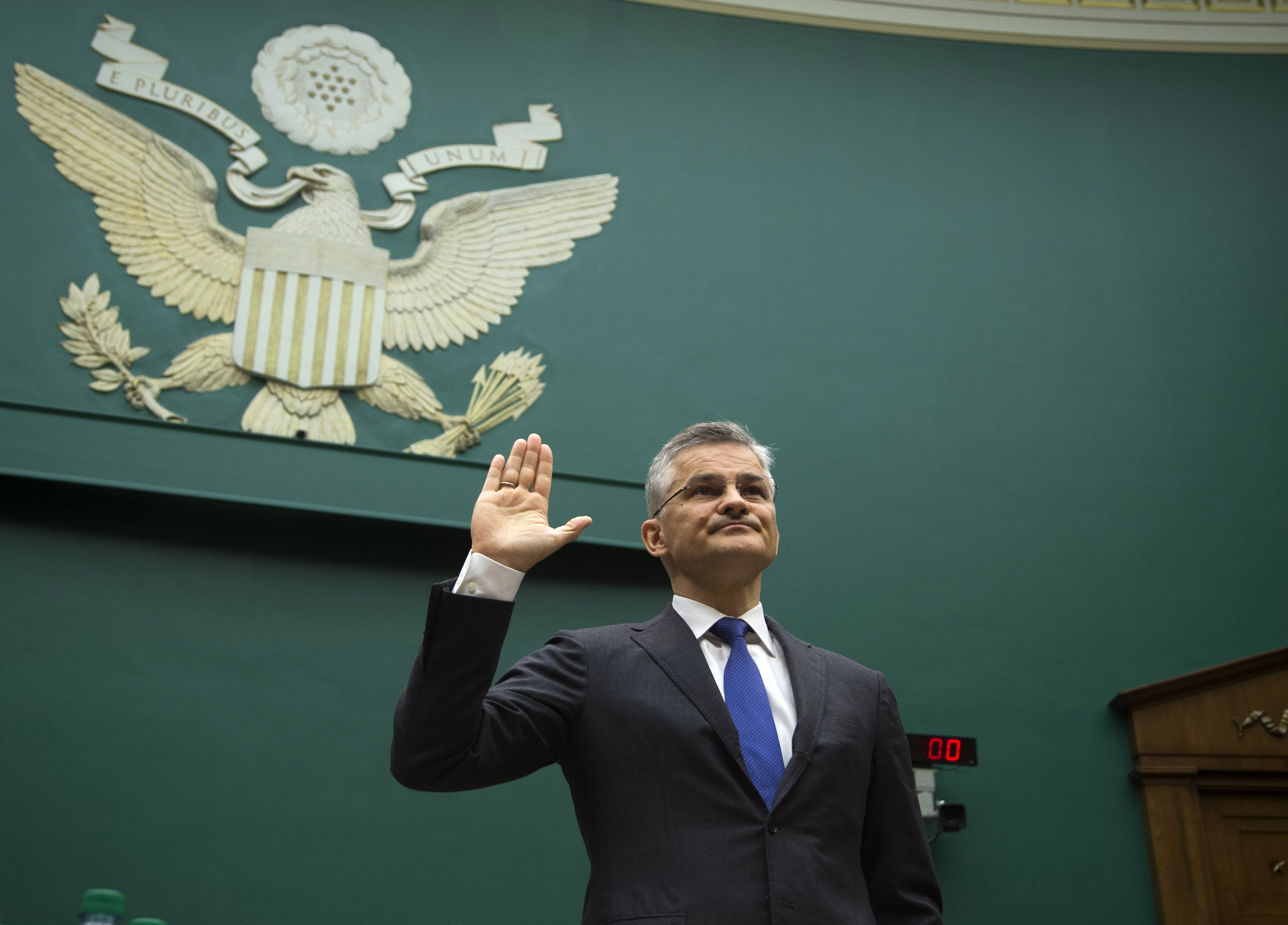We have to bloody learn and use this opportunity to get [the companys] act together.
Volkswagen Group of America's chief told a congressional panel Thursday he believes the defeat devices put in diesel vehicles are due to "a couple of software engineers" - not a corporate decision.
CEO Michael Horn also said it may take one or two years, at a minimum, to fix the nearly 500,000 U.S. vehicles at the center of an emission-rigging scandal. That's once a repair process is identified.
"We know we can fix these vehicles," the VW official said during more than two hours of testimony before the House Energy and Commerce Committee's oversight and investigations panel in Washington, D.C.
He said a software fix may be available on some of the vehicles in the U.S., such as in 2015 and 2016 models. VW's Chattanooga assembly plant is producing some 2016 diesel Passats and leaving them on-site until the fix is identified.
Rebecca Lindland, a Kelley Blue Book analyst who watched the hearing, said that even though a software fix may be all that's needed on the 2016 diesel Passat, there may still be delays in its sales.
"I'm more apt to say months than weeks and days," she said.
Horn said a hardware repair may be needed on about 400,000 VW diesel vehicles, and that will be more time -consuming. He cited the possible use of a urea-solution tank or catalytic converter.
Horn said he first learned the software defeat device was installed on some diesel vehicles on Sept. 3, following a meeting with environmental regulators. On Sept. 18, the U.S. Environmental Protection Agency officially notified VW about the emissions violation, setting off a storm that has shaken the global automaker.
"I didn't have any reason to expect our vehicles included such a device" before that time, said Horn. Some media sites speculated on Thursday that Horn may leave the company.
He said he felt "personally deceived" about the use of the software that allowed the cars to pass EPA emissions tests but spewed out much higher emissions on the road.
While Horn said corporate officials for the German automaker also found out about the defeat devices on Sept. 3, he said "I struggle as well" that the problem wasn't known earlier.
"We have to bloody learn and use this opportunity to get [the company's] act together," the 25-year VW veteran said.
Panel member U.S. Rep. Chris Collins, R-N.Y., said he doesn't buy the explanation that "this is a couple of rogue engineers."
"I categorically reject that," he said.
U.S. Rep. Fred Upton, R-Mich., the committee's chairman, said he thinks "something became rotten at VW."
"They've betrayed the trust of regulators, dealers, suppliers and, most important, the driving public," he said.
Upton referenced the late Tennessee U.S. Sen. Howard Baker, citing the question he asked during the Watergate hearings of "What did you know, and when did you know it?"
U.S. Rep. Diana DeGette, D-Colo., said that VW was essentially forced to "come clean" after regulators discovered the deception.
"There's a lot more things we don't know and need answers for," she said. "Until VW comes forward with answers and assurances, people and Congress are left in the dark."
U.S. Rep. Marsha Blackburn, R-Tenn., said VW's actions are "a systemic failure" of a few company employees, though not workers in Chattanooga.
"It is disappointing," said Blackburn, vice chairman of the House committee. "We've got hard-working Tennesseans at the Chattanooga factory."
Horn said that after the fix is installed, officials believe the vehicles will meet the EPA fuel mileage ratings as well as emission standards.
He also said there may only be "a slight impact on performance" such as dropping top speed by one or two miles per hour.
Lindland said Horn did not talk about the torque of the vehicles, or, for instance, how quickly they can pull away from a traffic light.
"If you're seeing a downgrade in torque, that's more of a critical issue for buyers and owners," she said.
Horn said the company is working with its dealer network, including providing financial programs to help them. VW put a stop-sales order on the diesel vehicles with the defeat devices.
"The dealer profitability is my first objective," Horn said.
Phillip Brooks, who directs the Air Enforcement Division for the EPA's Office of Enforcement and Compliance Assurance, told the panel that he couldn't speculate on enforcement actions against the company, but it is working with the Department of Justice.
"It's a possibility," he said about criminal action.
Worldwide, VW has said the problem extends to about 11 million vehicles. The company has set aside about $7 billion to deal with the issue, but some observers believe that won't be enough.
Contact Mike Pare at mpare@timesfreepress.com or 423-757-6318.


